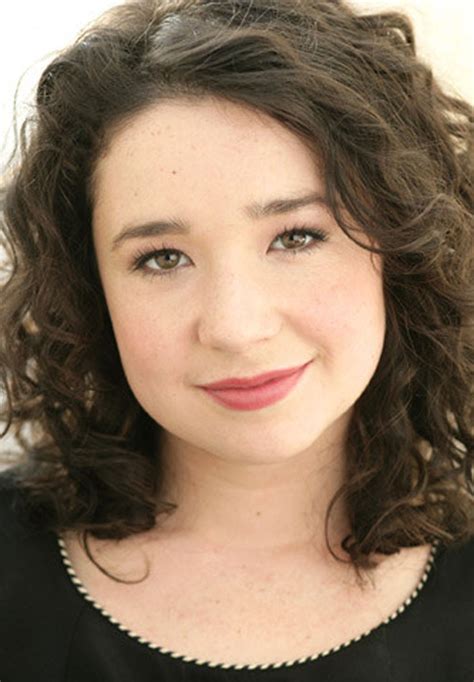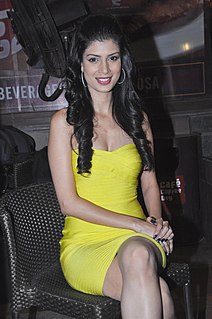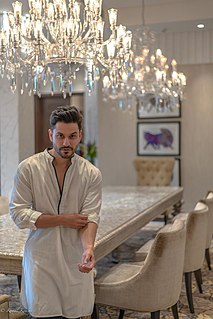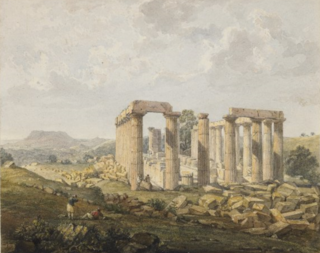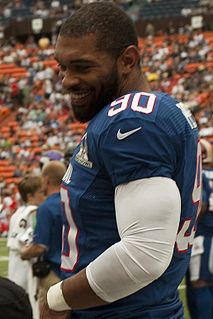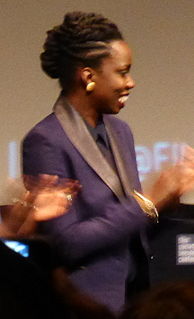A Quote by Sarah Steele
I got so much out of 'The To-Do List.' This is a joke that I say about myself sometimes, in terms of my film career: I feel like I'm always playing the kid in serious adult movies. So, for me, it was so wonderful to suddenly be working with other people my age who were doing this on film.
Related Quotes
I think sometimes there are films where I understand what they are about, but there are also some mysterious areas in the film where I haven't got the whole image and I haven't got everything. And then it stays much longer with me, because I have to somehow put myself much more into the film to get it. And so this is what I'm trying to do with my films.
I'm trying to figure myself out through my movies. Whether it's big stuff like what we're doing here, or little stuff like why aren't I happier? With every film I feel like I'm apologising for something. I feel I'm most successful when I'm looking for something that embarrasses me about my character that I'd like to expose.
I'm trying to figure myself out through my movies. Whether it's big stuff like what we're doing here, or little stuff like, 'Why aren't I happier?' With every film I feel like I'm apologising for something. I feel I'm most successful when I'm looking for something that embarrasses me about my character that I'd like to expose.
I'm just as intrigued by acting as ever. It's an ongoing process. There's no arrival. There's no point at which you say "Oh, OK, done it, got it." It just doesn't happen. And that's true of any creative endeavor. For me, it's just a lifelong interest. I'm very much interested in the craft. I started by doing plays and it took me a long time to feel comfortable doing movies, working with cameras. I felt like I was a theater actress pretending that I was a movie actress for quite a while. Now, I just love the process of working with cameras and being on a set and trying to put a film together.
When you're doing a film and the majority of the film is cast black, for me, it's most important to get people to view those movies as just movies, as just good movies. At the end of the day, regardless of the color of the cast, we're all doing the same thing in this business: trying to make a good film.
From the very beginning, all of my films have divided the critics. Some have thought them wonderful, and others have found very little good to say. But subsequent critical opinion has always resulted in a very remarkable shift to the favorable. In one instance, the same critic who originally rapped the film has several years later put it on an all-time best list. But of course, the lasting and ultimately most important reputation of a film is not based on reviews, but on what, if anything, people say about it over the years, and on how much affection for it they have.
I love Brooke Shields. She's developed into a wonderful actress and a wonderful person. We were all babies then in Brenda Starr. That's why when people say, "What did you think of that film?" I can't do what people do and say, "I hated it." I can't speak ill of a film, because it's so hard to make a film. Everybody thinks we're sitting by a pool peeling grapes, and this is not the case. It's hard. It's hard to do this stuff - and getting harder!
That one thing that people say about me taking plays off, I feel like somebody said that when I was playing in college and it has followed me throughout my career. Because I feel like if we had the film and you wanted to pick one person who was taking a play off on a particular play, you could pick anybody.
I grew up in New York and I've always lived here, so I look at myself as a regular person. When somebody recognizes me from the film - and it can be a wide range of people, which shows the power of film - I feel like they're talking about someone else we both know. I just find it hard to believe that anyone would stop me to share how much they loved something that I was a part of.
